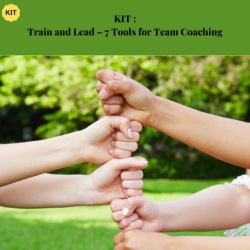£59.00
This workshop addresses Emotional Intelligence (EI) – concentrating on self-awareness and management and social awareness and management, which are the four main areas of study within Emotional Intelligence.
Description :
This workshop addresses Emotional Intelligence (EI) – concentrating on self-awareness and management and social awareness and management, which are the four main areas of study within Emotional Intelligence.
Emotional Intelligence has really come into popularity in the last quarter century – in fact, many state that Emotional Intelligence is just as important as general intelligence. The latter determines what they (know?) and retain, whereas Emotional Intelligence relates to how people do things. It has been shown that the most effective leaders in the last decades have had a high level of Emotional Intelligence.
The first two sections concentrate on self-awareness and management – how well does one really know their emotions – have the ability to recognise them and ultimately manage them. The same with others – how easily can their emotions be assessed and how can one display empathy and support so they can manage their emotions as well.
The course has many assessments both for self and social. Decide what assessments you think are the most relevant to the course you want to run. Using all assessments would be overwhelming but they are included so that you can decide what is best for your particular training. Also, determine if you want to have the participants do the assessments as pre-work or during the course.
Once you have learned from your client what their needs are, you can more easily decide how to use the kit. For example, if the main purpose of the training is to be more emotionally aware in teams, then you might want to concentrate more on social awareness and management.
As with any training it would be helpful to understand the needs of the participants as well – for example, they might want to learn more about themselves and focus more on self-awareness and management.
Ideally all four areas can be covered – but that is dependent upon time restrictions.
Further, understand from both your client and participants, how they want to measure their learnings – what is something that they can do more effectively or differently from attending this course? What is the outcome they want?
For example, you could run four sessions, taking each topic one at a time:
The course could be run virtually too – in which case definitely divide the content into a minimum of two sessions, if not four.
Having participants take any assessments ahead of the workshop would also save time if necessary.
The facilitator’s manual will help you carry out the various exercises. Additional information on several of the topics also included if you want to supply more information.
SCARF Assessment is available online:
https://neuroleadership.com/research/tools/nli-scarf-assessment/

